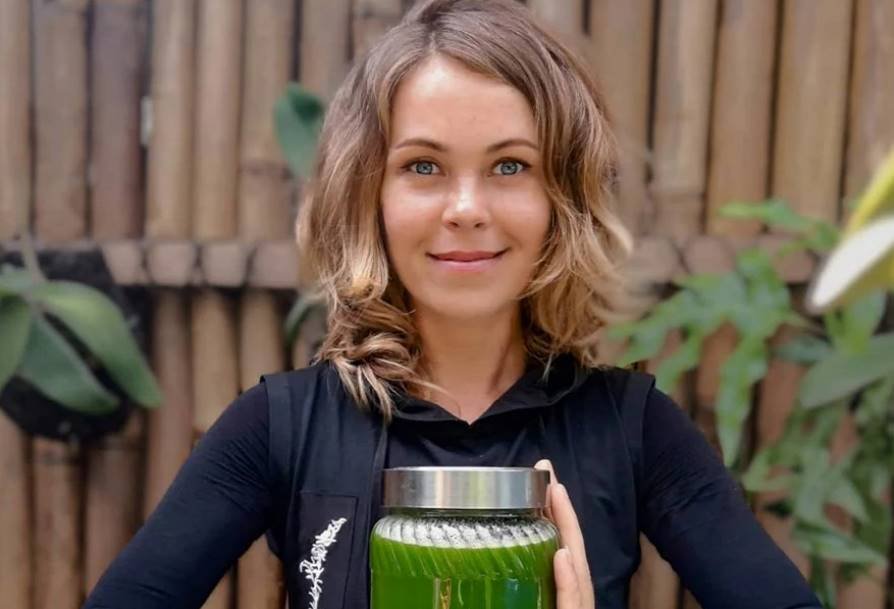A Russian social media influencer and vegan food promoter, Zhanna Samsonova, has died reportedly of starvation after following an extreme fruit-only diet for several years. The 39-year-old, who was popularly known as Zhanna D’Art to her millions of followers, passed away on July 21 in Malaysia.
How did Zhanna’s starve to death?
According to Zhanna’s friends and family, she suffered from anorexia and had severely restricted her diet in recent months, leading to deficiencies that did a “lot of damage” to her body. She had been eating and drinking “only fruits, sunflower seed sprouts, fruit smoothies, and juices” for the past five years. For the last seven years, she had been consuming only durian, a smelly spiky fruit native to Southeast Asia.

Zhanna developed a “cholera-like infection” which was triggered by the exhaustion of her body due to the vegan diet, local media reported citing her mother. Her mother did not approve of her diet habit and had tried to convince her to have a balanced diet. However, Zhanna refused to listen and continued with her extreme lifestyle.
Her friends revealed that a few months ago in Sri Lanka she looked exhausted with swollen legs and oozing lymphs. “They sent her home to seek treatment. However, she ran away again. When I saw her in Phuket, I was horrified,” one of her friends told The Sun. She was bed-ridden for almost a month before she died.
What are the risks of a vegan diet?
Vegan diets have gained immense popularity over the recent years, especially among weight watchers and animal rights activists. However, it is not considered to be a balanced diet and hence has its own pros and cons. As per studies, consuming a vegan diet for a longer time can lead to serious nutritional deficiencies.
A study published in February 2023 titled “The Impact of a Vegan Diet on Many Aspects of Health: The Overlooked Side of Veganism” found that a vegan diet “carries the potential for micro- and macronutrient deficits.” The study found that the deficits due to a vegan diet affect mental health, lead to a condition called orthorexia nervosa which involves obsessive (compulsive) food decisions and is the reason behind insufficient protein, calcium, zinc, vitamin B12, and vitamin D in the body.
Another study published in July 2023 titled “Vegan Diet: Benefits and Risks” stated that vegans are at a higher risk of developing osteoporosis, anemia, neurological disorders, and cardiovascular diseases due to the lack of essential nutrients in their diet. The study also suggested that vegans should supplement their diet with fortified foods or supplements to avoid these complications.
How to follow a healthy vegan diet?
While a vegan diet can have some benefits for the environment and animal welfare, it is not advisable to follow it without proper guidance and supervision from a nutritionist or a doctor. A healthy vegan diet should include a variety of plant-based foods that provide adequate calories, protein, fiber, vitamins, minerals, and antioxidants.
Some of the foods that vegans can include in their diet are:
- Whole grains such as oats, quinoa, brown rice, buckwheat, etc.
- Legumes such as beans, lentils, chickpeas, soybeans, tofu, tempeh, etc.
- Nuts and seeds such as almonds, walnuts, cashews, pistachios, sunflower seeds, chia seeds, flax seeds, hemp seeds, etc.
- Fruits and vegetables such as apples, bananas, oranges, berries, grapes, mangoes, kiwis, broccoli, spinach, kale, carrots, tomatoes, peppers, etc.
- Healthy fats such as olive oil, coconut oil, avocado oil, etc.
- Plant-based milks such as almond milk, soy milk, oat milk, rice milk, etc.
- Plant-based yogurts and cheeses such as coconut yogurt, soy yogurt, cashew cheese, almond cheese, etc.
- Spices and herbs such as turmeric, ginger, garlic, cinnamon, basil, oregano, etc.
Vegans should also consume fortified foods or supplements that provide vitamin B12, vitamin D, calcium, iron, zinc, and iodine, as these are not easily available from plant sources. Vegans should also drink enough water and avoid processed foods, added sugars, and alcohol.





















